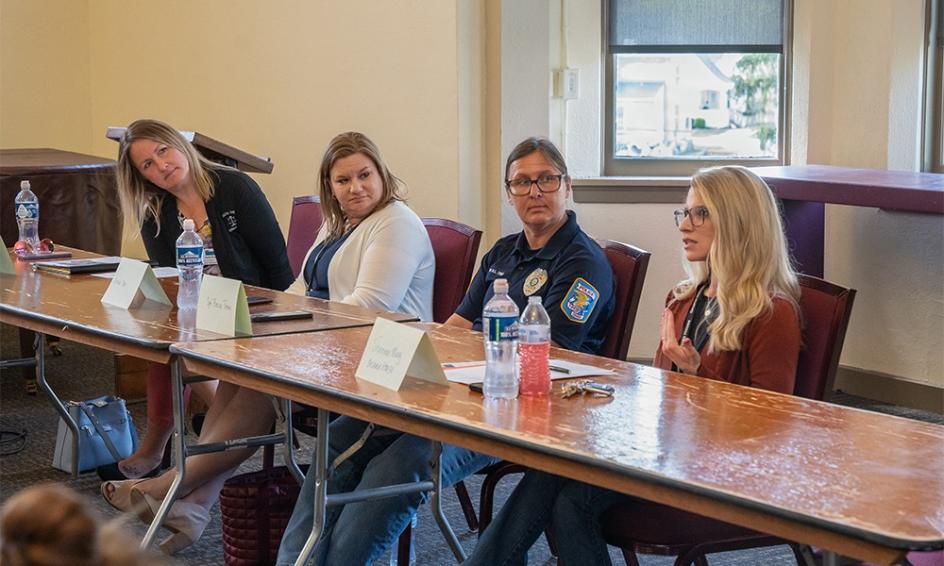
In a field historically dominated by men, a panel of powerful voices gathered at Heidelberg University Monday to share their experiences, insights, and challenges as women working across the criminal justice system.
Organized by Professor Sarah Lazzari as part of the Women, Gender, and Crime course, the Women in Criminal Justice panel welcomed students, faculty, and community members into Herbster Chapel for an honest conversation. The panel featured four accomplished professionals: Seneca County Municipal Court Judge Rhonda Best, Shannon Maag of Oriana House, Kendra Shearer, the Director of Court Services, and Sgt. Rebecca Timm of the Tiffin Police Department.
Each woman brought a unique perspective, rooted in years of firsthand experience navigating courts, corrections, recovery programs, and community policing. They didn’t just talk about their titles, they shared their motivations, their challenges, and what keeps them going in a system that has not always made space for women.
For Judge Best, it’s about staying grounded in fairness. “The court is not for politics,” she said. “It’s for getting results and being consistent.” Even when mistaken for a man in court—“Sir,” which is common for a female Judge- she shrugs it off. “I put it aside and do the best job I can, because that is what I’m there to do.”
Kendra Shearer shared how personal experiences shaped her path. Inspired by her sister’s struggles, she knew early on she wanted to work with youth. Her approach is grounded in empathy. “Knowing who you are working with, getting to know their why … that’s how you find the balance.”
Shannon Maag offered heartfelt reflections on what brings people to this work: “We don’t get here by accident,” she said. “You either experience something yourself or witness someone else’s journey, and that pulls you in.” Her message to students? “Take care of yourself. This field is stressful, but it’s rewarding.”
Sgt. Timm spoke candidly about the realities of law enforcement, from juggling her role as a mother and grandmother to managing high-stress calls with mental health awareness. “We’re just normal people,” she said. “We don’t have superpowers. We’ve just chosen a different career path.”
Student Gracie Chester guided the discussion with thoughtful questions, prompting reflection not only on careers but on the emotional labor of justice work. Whether talking about long shifts, the value of trauma-informed training, or the rare moments of thanks from someone they’ve helped, each panelist returned to a shared truth: their work matters.
“Even if you help one person in 10 years,” Judge Best reminded the audience, “you’ve still made a difference.”
The event was a reminder that justice isn’t only delivered in courtrooms or patrol cars. It’s carried out in the compassion, strength, and courage of those who serve. And for Heidelberg students considering careers in criminal justice, it offered not just insight, but a vision of leadership worth striving toward.